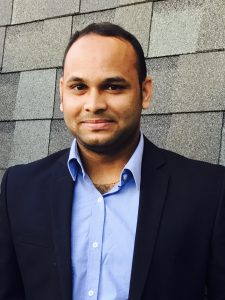Ph.D. student Kiran Kumar Bandeli has been invited to speak about “Computational Narrative Analysis on Blogs/Social Media.” The colloquium will be held in the Donaghey College of Engineering and Information Technology (EIT) Building, Room 217 at 3:00pm CST. You can attend in person or utilize the link below to view the presentation from any device with online access: https://us.bbcollab.com/guest/72ac95525d524120812cd25254122fbb

Abstract of Talk:
Social media is widely used to express views and share opinions with others. With the availability of inexpensive and ubiquitous mass communication tools like social media, creating narratives, false information and propaganda is both convenient and effective. Social media users leverage this platform to further their views by framing narratives and participating in online discourse. Almost all events, issues, crises are discussed on social media. Blogs are a good source of data for sociologists and political scientists to gain situational awareness by tracking different opinions, political views, and narratives being shaped. Blogs, unlike other social media platforms, are not regulated by any authority and have no restriction on character limit, provide bloggers with not only space for richer content but also serve as a platform for agenda-setting and content framing abetting development of narratives. Fundamentally, narratives are described with actors and their actions in a given discourse. Existing studies use a manual way for labeling actors/actions to carry out narrative analysis. To overcome this problem, we propose a novel framework that computationally identifies actors/actions with the help of entities and terms that describe the context. Further, by building a topic network with entities and terms obtained from TF-IDF (Term Frequency – Document Frequency), we can help identify narratives. As the discourse is surrounded with entities and co-occurring terms, we implement our model to detect narratives. Our method is observed to be a better way to detect narratives. To evaluate the efficacy of the proposed model, we conduct several experiments on the real-world event based datasets to understand narratives. This research presents an in-depth examination of the topic networks using real world events. First, we experiment our methodology on EU Migrant Crisis dataset to observe shift in narratives towards refugees/migrants during migrant crisis in Europe. Second, NATO Trident Juncture 2018 Exercise dataset is used where we observe the spread of anti-US narratives.
